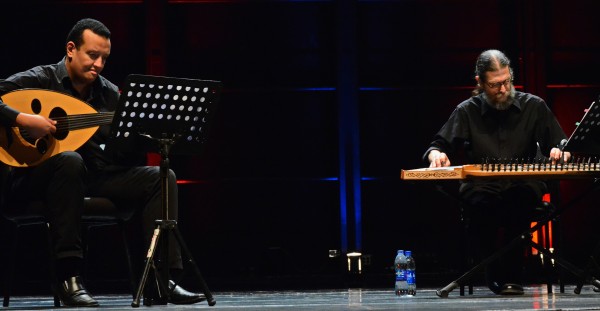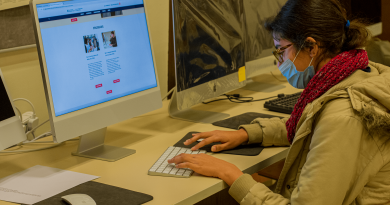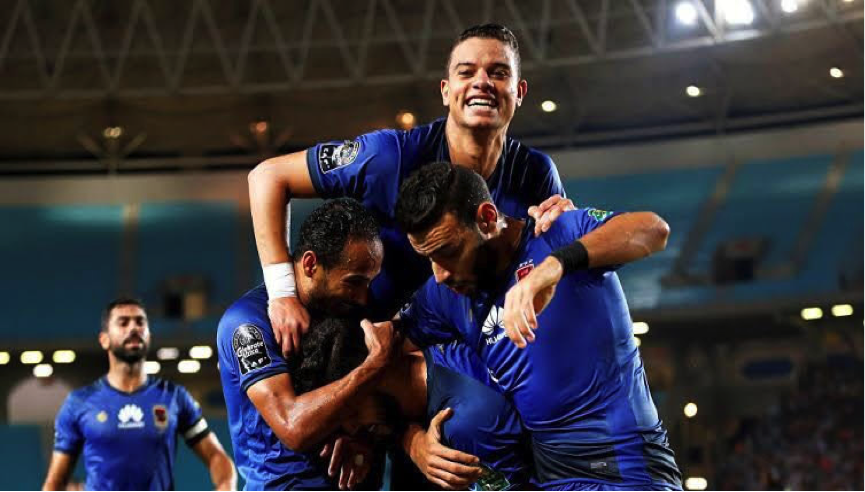Lions of Cairo Show the World their Many Voices
![The Lions of Cairo perform a blend of Western and Arabic music [Malek Haihaq]](http://www.auccaravan.com/wp-content/uploads/2016/11/DSC_2280-e1479731110649.jpg)
@Yasmine_Bassily
The Lions of Cairo swooned their audience with their iconic performance at AUC’s Falaki theatre on November 10, taking their listeners on a timeless journey through music.
Founded by Associate Professor of Music and Director of the Music Program John Baboukis, The Lions of Cairois an early music group comprised mainly of AUC faculty and alumni.
The ensemble regularly performs across Egypt, presenting Renaissance, Medieval, Byzantine chants, Baroque Western music and Classical Arabic music.
The Lions led their concert with a 13th century Italian lauda spirituale, which was one of the most prominent Italian song types during the medieval and renaissance eras.
“O divina virgo flore,” sung by the angelic voices of singer Amy Frega, soprano Sallie Pisch, and Virginie Foucard and Star Academy winner Nesma Mahgoub, alongside with Baboukis’ overwhelmingly charming voice.
A Francesco Landini classic, “Unna Conlonba” was presented shortly after. The Italian 14th century piece was sung by Virginie Foucard, and left the audience in awe with the depth of her soprano, as Baboukis complemented her with his take on the bass.
According to the singer, Landini, a blind musician, was one of the most famous composers in Italy of his generation.
Another piece performed by Foucard and Mahgoub for soprano alongside with Baboukis, singing counter, is “Pescha”, which is a “parody on a more vulgar kind of music.” The piece tells the story of a women fishing out men from a fishing hole.
Music, often through telling a story, creates pathways to different cultures.
“If you know nothing about the music of a particular culture, and you start to listen to it, after a while, it will begin to make more and more sense to you,” added Baboukis to The Caravan.
In fact, Baboukis’ first encounter with Arabic music was not through study. When he arrived in Egypt 12 years ago, he had not heard of Umm Kulthum before.
“After three of four years of riding in taxis in Zamalek, I had to go out and find out about Umm Kulthum, and now I play the qanoon, and I do in fact perform Arab music,” said Baboukis.
The Lions choose to cross cultures through their concerts. The last performance was concluded with the everlasting classic “Lama Bada Yatathana.”
In Baboukis’ opinion, there is synchronicity between the music of Eastern Europe, older Western music and Arab music.
“[The genres] have very similar textures; they have a very similar underlying logic,” Baboukis told The Caravan.
Professor of Arab Music at AUC, Alaa Saber, played the oud as he performed Landini’s “Stantipes,” with Baboukis playing the harpsichord.
An Economics graduate and an eight-year flute player, Marlene William, attended the concert and was thrilled that medieval music was finally being performed in Egypt.
“I was really inspired […] and I got to see a harpsichord in Egypt. That was a surprise to me!” said William to The Caravan.
William added that she was extremely happy with the choice of music, describing it as innovative, especially since this type of music is no longer widely appreciated.
Similarly, Frega, who often performs jazz and pop, admires the chance to be part of something this distinct.
“It’s basically the music that I love and I don’t have the opportunity to sing as often,” Frega told The Caravan.
Frega has been performing since childhood, and knew that singing was her destiny.
“It just moved me, and I couldn’t see myself doing anything else. I found that it was something that I could express myself through,” added Frega.
According to Baboukis, for a large number of people, music is the face of AUC. The Lions of Cairo have indeed reached an audience of non-AUCians.
In early 2016, The Lions performed in Bibliotheca Alexandria. Additionally, their performances at Falaki theatre are always open to the Egyptian community, and welcome music enthusiasts from all over Egypt.
“Music is what we do, it is our outreach to the community,” Baboukis emphasized.
Baboukis founded the ensemble after moving to Egypt in 2004. Starting off as a small and selected group of singers, the Lions of Cairo later evolved into a professional ensemble, with the Arabic music component added later on.
“It’s [music] something which is accessible to everyone and becomes more so the more you listen to a particular kind of, or style of music,” said Baboukis.
The Lions of Cairo continue to present their mastered music across Egypt, serving the art community through their various talents.




